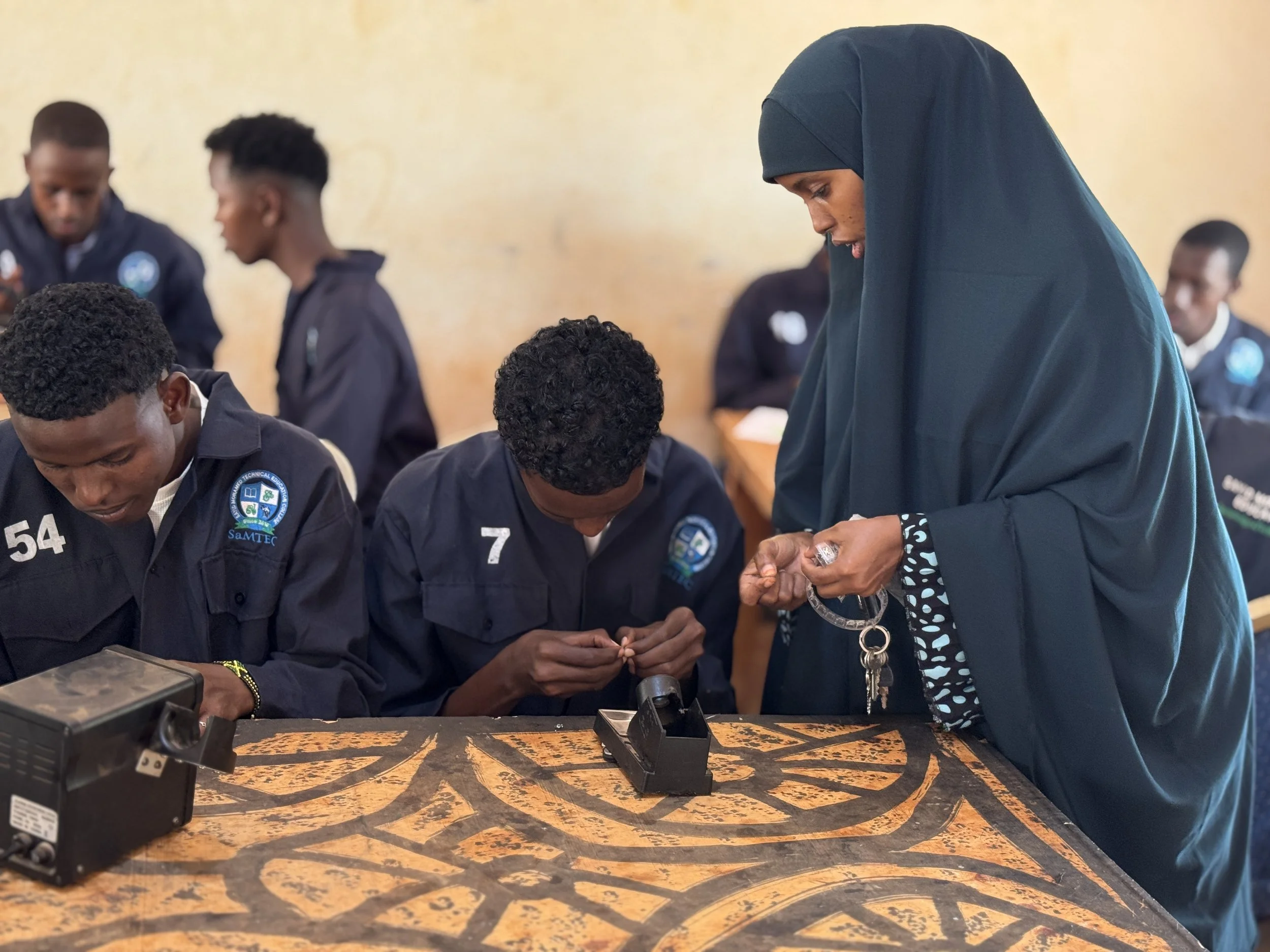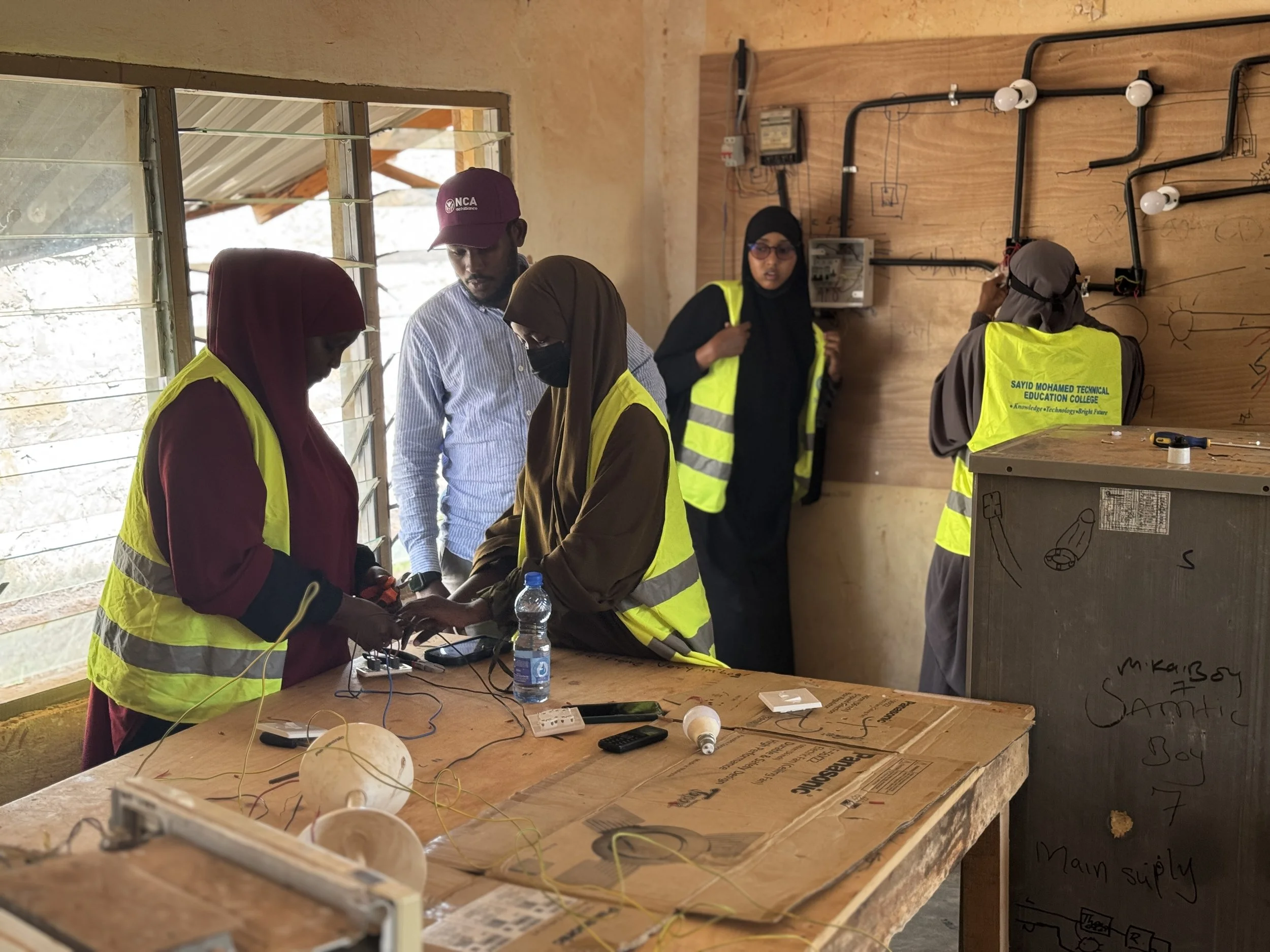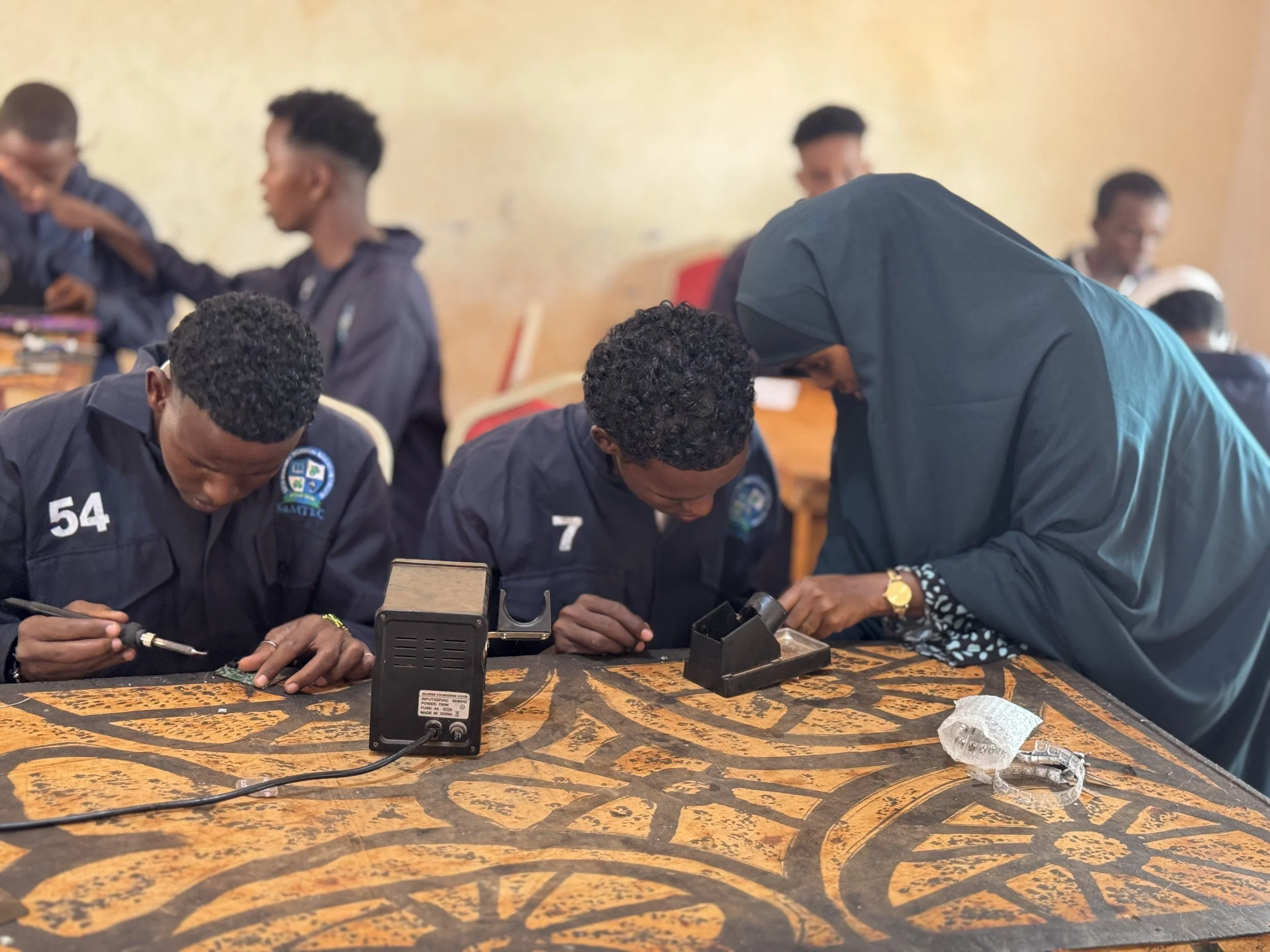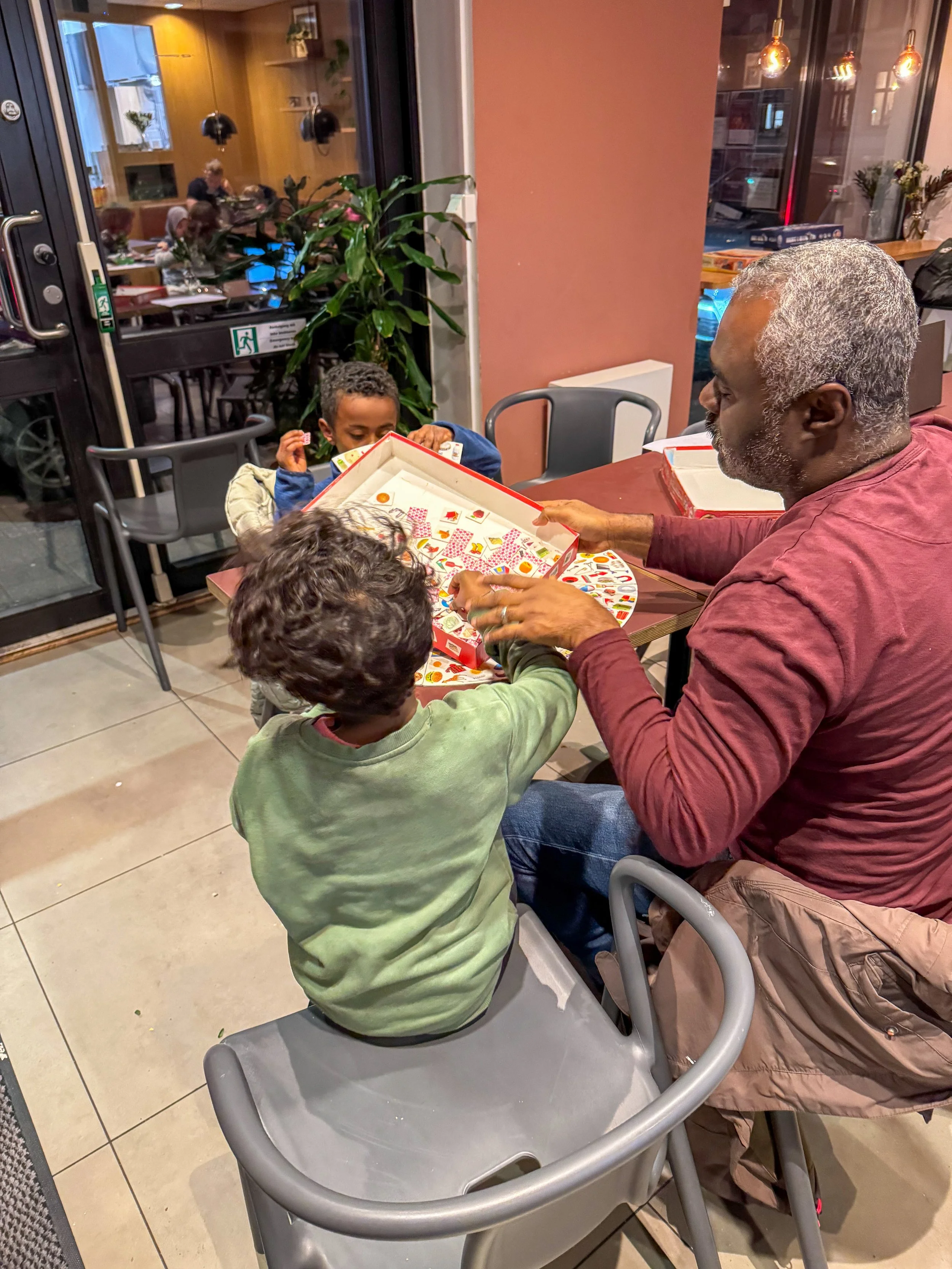Najma Breaks Barriers in Somalia’s Male-Dominated Tech Sector
Najma Ahmed, once a trainee, now a trainer, smiling with pride as she breaks barriers and inspires a new generation of Somali girls.
Najma Ahmed (Rodo) lives in Beled Hawa, a town in Somalia’s Gedo region. Her journey in life hasn’t been easy as she lost her father at a young age, which forced her to drop out of school. Soon after, Najma was married off as a young girl, a fate shared by many girls in her community. The marriage didn’t last and Najma, a divorced single mother who is raising her 5-year-old daughter, found herself at home with no source of income, no education, and limited hope.
When Najma heard about the vocational skills training opportunity, implemented by NCA through its partner CeRID and funded by Grieg Foundation, she saw a lifeline. While many girls enrolled in tailoring, beauty, or cooking classes, Najma made a bold choice by signing up for the mobile phone repair course, a field overwhelmingly dominated by men in Somalia. So just a year ago, Najma was a trainee herself as the only girl in a male-dominated mobile phone repair course.
Najma training students in mobile phone repair at the TVET center
The social pressure was immense. In a conservative setting, her presence in a tech course challenged deeply rooted gender norms. Community members whispered, others laughed, and even some relatives discouraged her. But Najma pushed on.
“People asked me, what are you doing with boys?’ Some even said, ‘you must have a problem, why else would a woman fix phones?’ But I didn’t let that stop me,” Najma recalls.
She attended every class, learned circuitry, mastered troubleshooting, and built hands-on repair skills. Her determination and work ethic stood out.
“I didn’t just want to learn a skill. I wanted to show my daughter and other girls that we can break barriers.”
: More girls are now enrolling in technical trades like electrical installation, inspired by Najma’s trailblazing example
Najma Ahmed (Rodo) is doing something extraordinary. Today, Najma walks into a classroom not as a student, but as a trainer, training young people including men, in mobile phone repair, a trade that is considered off-limits for women in her community.
Najma went on to graduate top of her class, outperforming all her male peers. Her excellence earned her something rare: a job offer from the very TVET center that trained her and today, Najma is a certified trainer in mobile repair. She teaches both men and women, and her classroom is now a space where change is visibly taking root. When she started, she was the only female in the course. Now, her class includes three girls, and more are enrolling in other technical courses, including electrical installation
“I used to dream of starting a phone repair shop. Now, I train others to start theirs. That’s my bigger dream come true.”
“If I can do this, so can you. Don’t let fear or people’s opinions stop you. Skills don’t have a gender.” Najma says
The Vocational skills training for youth Project is equipping 70 students in Gedo with market-driven vocational and business skills across trades like electrical mechanics and electricity, beauty salon and mobile phone repair with the aim of improving employment opportunities and empowering youth for a sustainable future.
Najma’s story is a shining example of this mission. By supporting local youth especially girls to enter the workforce with confidence, NCA and CeRID are not just changing individual lives; they are reshaping communities.
Najma is now a household name in Beled Hawa. For many girls, she’s more than a trainer, she’s a symbol of what’s possible when opportunity meets courage.
With support from Grieg Foundation, and implemented by NCA and CeRID, this project is not just teaching skills, it’s transforming futures. Najma’s story is living proof that when you invest in women, entire communities rise.
Who: Kirkens Nødhjelp/ Norwegian Church Aid
What: Voccational Education for Somali youth
Related stories
STORIES FROM OUR PRIORITY AREAS
All · Children & youth · Music & culture · Health & research · Climate action · Social impact investment







